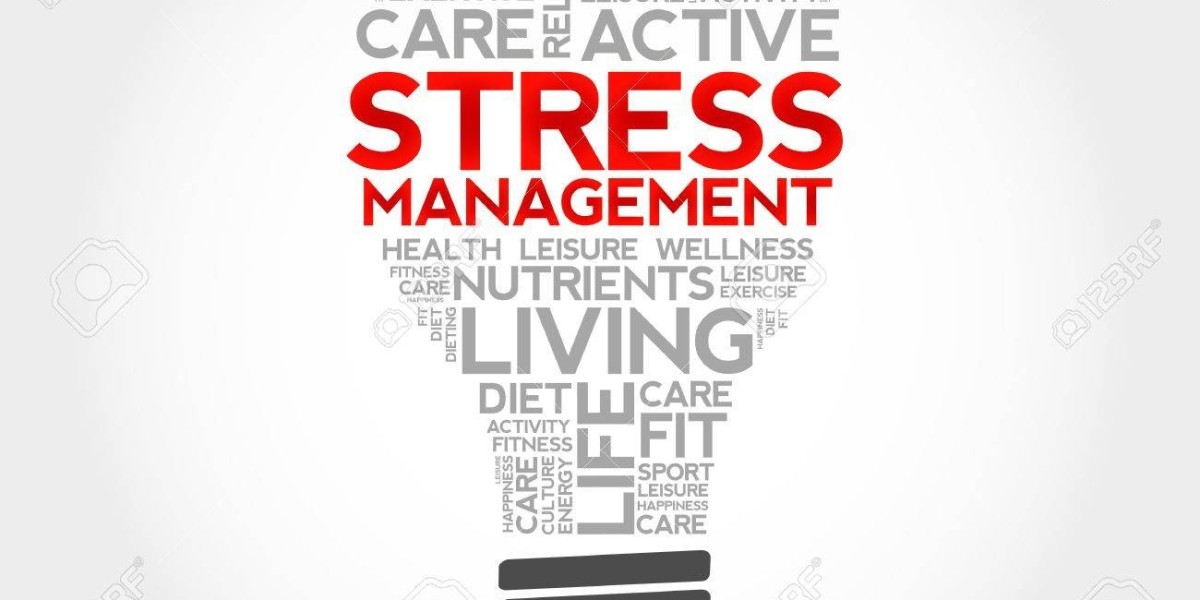In a fast-paced world, stress has become a constant companion for millions. The pressure to perform, meet deadlines, juggle family responsibilities, and cope with unexpected life events can lead to emotional exhaustion, anxiety, and even physical illness. Fortunately, there are stress management solutions that are both effective and sustainable. These methods address not only the symptoms of stress but also the root causes, providing a holistic pathway to balance and resilience.
This guide offers in-depth, practical strategies to help individuals, professionals, and families reduce stress, boost mental clarity, and restore emotional well-being.
Understanding Stress: The Hidden Impact on Mind and Body
Stress is more than just a feeling—it’s a biological response that affects every system of the body. When we encounter a stressful situation, the brain triggers a “fight-or-flight” response, releasing hormones like cortisol and adrenaline. While this reaction is helpful in emergencies, chronic activation can result in:
Sleep disturbances
Weakened immune function
Increased blood pressure
Anxiety and depression
Weight gain or loss
Cognitive fatigue and burnout
The goal of stress management is to break the cycle, teaching the nervous system how to return to a calm, regulated state.
Top Stress Management Solutions That Work
1. Deep Breathing and Breathwork Techniques
Simple yet powerful, deep breathing is one of the fastest ways to calm the nervous system. Techniques include:
Box breathing (inhale-hold-exhale-hold for 4 seconds each)
Diaphragmatic breathing (focusing on belly expansion)
4-7-8 breathing (inhale for 4, hold for 7, exhale for 8)
Practicing breathwork daily reduces cortisol, lowers heart rate, and promotes inner calm.
2. Time Management and Task Prioritization
Many stressors stem from feeling overwhelmed by responsibilities. Effective solutions include:
The Eisenhower Matrix: Distinguishing between urgent and important tasks
Time blocking: Allocating specific hours to specific tasks
Digital detoxing: Scheduling screen-free hours each day
Using a planner: Visualizing your tasks to reduce mental clutter
When your schedule reflects your priorities, stress levels naturally drop.
3. Physical Activity and Movement Therapy
Exercise is not just good for the body—it’s essential for mental well-being. It releases endorphins, which are natural mood lifters. Consider:
Daily walks in nature (forest bathing)
Yoga or Tai Chi for gentle, mindful movement
Dance or martial arts for expressive release
Cardio workouts to release built-up tension
Even just 20–30 minutes of physical activity daily can significantly lower stress levels.
4. Meditation and Mindfulness Practices
Mindfulness helps us remain present, reducing stress from past regrets or future worries. Practices include:
Guided meditation apps like Calm or Insight Timer
Mindful eating and walking
Body scan meditations for full-body awareness
Daily gratitude journaling to reframe focus
Studies show that mindfulness can rewire the brain, increasing resilience and emotional intelligence.
5. Nutrition for Mental Wellness
What you eat affects how you feel. For better stress management, focus on:
Omega-3 rich foods (salmon, walnuts, flaxseed) to support brain function
Complex carbohydrates (quinoa, oats) to regulate serotonin
Magnesium-rich foods (spinach, almonds) to soothe the nervous system
Avoiding sugar, caffeine, and processed foods that spike and crash energy
A balanced diet stabilizes mood and sharpens focus.
6. Social Support and Connection
Loneliness and isolation amplify stress. Strong social connections act as a buffer. Try:
Calling a friend regularly
Joining support groups or workshops
Attending local community events
Speaking to a coach, counselor, or therapist
Human connection is one of the most powerful antidotes to chronic stress.
7. Cognitive Behavioral Tools and Thought Reframing
Our thoughts often dictate our stress levels. Learning to reframe negative thinking is a powerful tool:
Identify distortions (catastrophizing, black-and-white thinking)
Challenge the narrative (“What evidence supports this thought?”)
Replace with affirming beliefs (“I am capable and resilient.”)
This technique builds mental flexibility and emotional strength.
8. Rest, Sleep, and Recovery Rituals
Sleep is the ultimate stress reliever. Without it, our bodies can't reset. Build a sleep sanctuary:
Stick to consistent sleep-wake times
Limit blue light exposure an hour before bed
Use aromatherapy (lavender, chamomile)
Practice a wind-down routine with reading, journaling, or calming music
When well-rested, your brain and body can better handle stress.
Integrative and Alternative Stress Management Approaches
Herbal Remedies and Adaptogens
Natural supplements can support the body in handling stress. These include:
Ashwagandha – Reduces cortisol
Rhodiola Rosea – Enhances energy and mood
Chamomile and passionflower – Promote relaxation
L-theanine – Found in green tea; calms without drowsiness
Always consult a healthcare provider before beginning new supplements.
Aromatherapy and Essential Oils
Scents influence the limbic system, which regulates emotions. Popular options include:
Lavender for calm
Peppermint for focus
Ylang-ylang for mood elevation
Frankincense for grounding
Use in diffusers, baths, or as topical roll-ons.
Art, Music, and Creative Expression
Artistic expression releases emotional tension. Consider:
Painting or sketching your emotions
Creating music or playing an instrument
Writing poetry or journaling thoughts
Singing, dancing, or sculpting
Creativity allows stress to flow out of the body in healing, productive ways.
Creating Your Personalized Stress Management Plan
To begin your journey, follow these steps:
Identify your primary stressors – Are they physical, emotional, financial, or relational?
Choose 2–3 strategies to start with – Mix physical, mental, and emotional approaches.
Track your stress response daily – Use a journal or app.
Adjust as needed – Be flexible and compassionate with yourself.
Stress reduction is not about perfection—it’s about progress and presence.
Final Thoughts: Regain Control, Restore Balance
Stress may be an inevitable part of life, but suffering from it doesn't have to be. With the right tools, mindset, and support, you can transform stress from a destructive force into a source of growth, clarity, and personal power.








